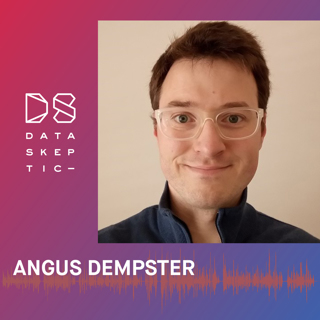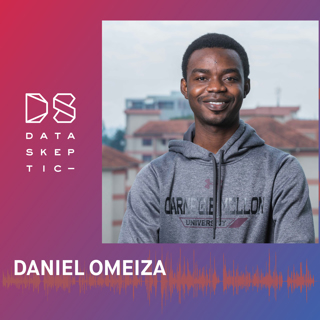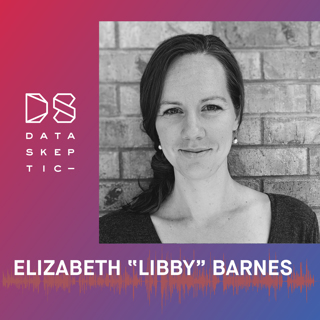
Ultra Long Time Series
Dr. Feng Li, (@f3ngli) is an Associate Professor of Statistics in the School of Statistics and Mathematics at Central University of Finance and Economics in Beijing, China. He joins us today to discuss his work Distributed ARIMA Models for Ultra-long Time Series.
13 Sep 202128min

MiniRocket
Angus Dempster, PhD Student at Monash University in Australia, comes on today to talk about MINIROCKET: A Very Fast (Almost) Deterministic Transform for Time Series Classification, a fast deterministic transform for time series classification. MINIROCKET reformulates ROCKET, gaining a 75x improvement on larger datasets with essentially the same performance. In this episode, we talk about the insights that realized this speedup as well as use cases.
6 Sep 202125min

ARiMA is not Sufficient
Chongshou Li, Associate Professor at Southwest Jiaotong University in China, joins us today to talk about his work Why are the ARIMA and SARIMA not Sufficient.
30 Aug 202122min

Comp Engine
Ben Fulcher, Senior Lecturer at the School of Physics at the University of Sydney in Australia, comes on today to talk about his project Comp Engine. Follow Ben on Twitter: @bendfulcher For posts about time series analysis : @comptimeseries comp-engine.org
23 Aug 202136min

Detecting Ransomware
Nitin Pundir, PhD candidate at University Florida and works at the Florida Institute for Cybersecurity Research, comes on today to talk about his work "RanStop: A Hardware-assisted Runtime Crypto-Ransomware Detection Technique." FICS Research Lab - https://fics.institute.ufl.edu/ LinkedIn - https://www.linkedin.com/in/nitin-pundir470/
16 Aug 202131min

GANs in Finance
Florian Eckerli, a recent graduate of Zurich University of Applied Sciences, comes on the show today to discuss his work Generative Adversarial Networks in Finance: An Overview.
9 Aug 202123min

Predicting Urban Land Use
Today on the show we have Daniel Omeiza, a doctoral student in the computer science department of the University of Oxford, who joins us to talk about his work Efficient Machine Learning for Large-Scale Urban Land-Use Forecasting in Sub-Saharan Africa.
2 Aug 202127min

Opportunities for Skillful Weather Prediction
Today on the show we have Elizabeth Barnes, Associate Professor in the department of Atmospheric Science at Colorado State University, who joins us to talk about her work Identifying Opportunities for Skillful Weather Prediction with Interpretable Neural Networks. Find more from the Barnes Research Group on their site. Weather is notoriously difficult to predict. Complex systems are demanding of computational power. Further, the chaotic nature of, well, nature, makes accurate forecasting especially difficult the longer into the future one wants to look. Yet all is not lost! In this interview, we explore the use of machine learning to help identify certain conditions under which the weather system has entered an unusually predictable position in it's normally chaotic state space.
26 Juli 202134min





















